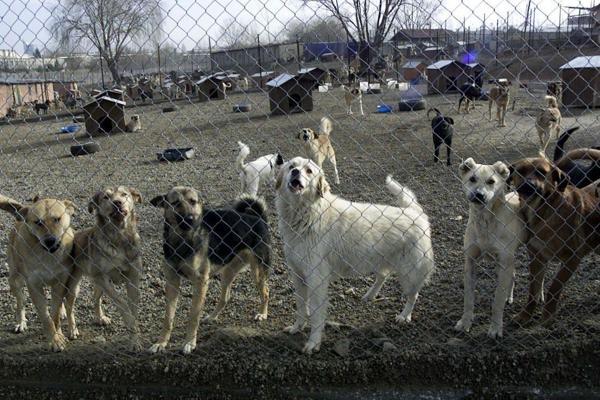British couple adopts out stray dogs in Turkish city
ISTANBUL


A British couple who settled in the Didim district of Aydın province in 2007 after vacationing in Türkiye has treated around 200 ailing dogs over the past 17 years, adopting many of them out predominantly overseas, daily Hürriyet has reported.
Following their retirement, 66-year-old British teaching assistant Lynn Dulladge and her 72-year-old husband, Roy Allan Dulladge, a systems and network engineer, sold their house in London and moved to Türkiye to embark on a new chapter in their lives.
The couple, who live with seven dogs, numerous cats and a rabbit in their home at present, also founded an animal walking association, mostly made up of British people.
They expanded the animal shelter, comprising two blocks and a few paddock cottages, provided medical care for ailing dogs using their own resources, and transported the animals to loving new homes across Europe, especially in Britain.
“We've always had pets, but we didn't have enough time for them because we were constantly working in Britain. These days, however, we try to ensure the safety, care and survival of stray dogs,” Lynn Dulladge told daily Hürriyet.
She further shared her desire to work with the government, the municipality or charitable organizations to build a living space for elderly or crippled stray dogs in the future.
Food waste may be converted into animal feed
Justice Minister Yılmaz Tunç pointed out that, with the Turkish parliament approving a law requiring municipalities to collect stray dogs and house them in shelters for vaccination, neutering and spaying before adoption, turning food waste with high protein content into animal feed could help facilitate this process.
“Gathering food leftovers and turning them into animal feed is a great idea within the scope of the zero waste efforts,” Tunç said, referring to this possible solution.
Türkiye launched the Zero Waste project to reduce the country's waste burden in 2018.
Türkiye is home to an estimated 4 million stray dogs, yet there are only 322 shelters with a combined capacity of 105,000. Consequently, plans to establish shelters with a capacity for 4 million dogs by 2028, along with the means to provide food for these animals, raise concerns.
On a question about converting food waste from public institutions, hotels and restaurants, as well as near-expiry food products from markets, into animal feed, Tunç said, "We must discuss this matter with our agriculture minister as well. Shelters may incur very high food costs. Making animal feed out of food waste is, of course, appropriate in this case."
